I am sure you are searching for a practical path to fertilize and protect your plants from insects and pests. After going through the processes of composting, vermicomposting, organic manure, and fertilizer usage, you must have observed that coffee grounds pop up as an ingredient in these processes.
‘Why do we need coffee grounds for plants?’ This thought process has led you to this article. In this article, we will explore the uses of coffee grounds for plants and their role in improving the soil conditions without using costly chemical fertilizers and pesticides.
Coffee and Tea are the two most famous beverages all over the world. They are so famous that they distinguish a person into a coffee person or tea person. Apart from their brewing aroma and irresistible flavor, these beverages produce residues.
Talking specifically about coffee, the coffee grounds are the leftovers that people usually throw away in the trash can. But have you ever wondered that you could make productive use of these coffee grounds!
Coffee grounds have many advantages and use, but the most important one is their role in your garden. Using coffee grounds for plants is nothing new, but it is lesser-known and even lesser practiced.
Many people ignore the perks of coffee grounds in composting and other processes—soil benefits from the coffee grounds, which eventually benefit the plants.
Why Should You Compulsorily Use Coffee Grounds for Plants?
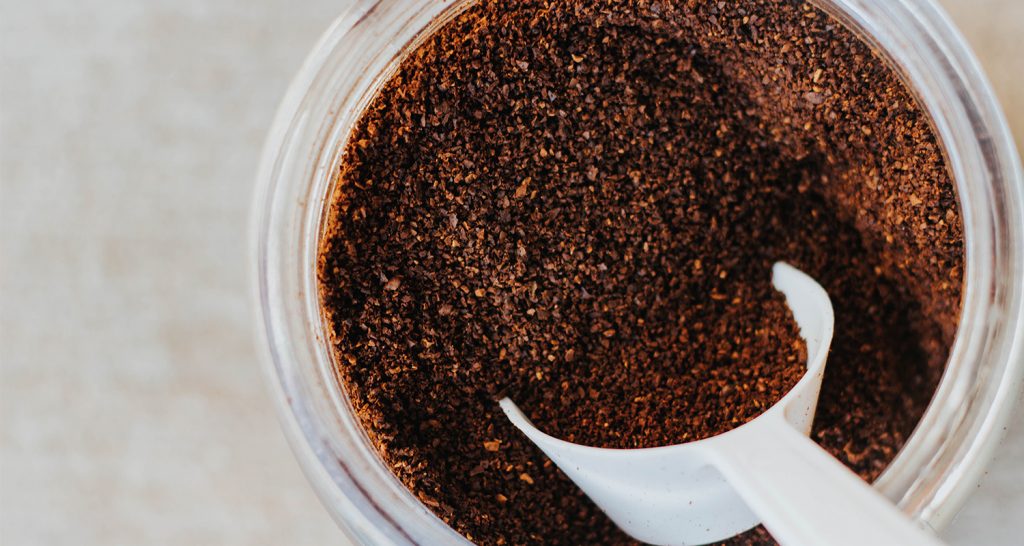
Before we discuss the uses of coffee grounds for plants, let us see why you should not avoid using them in your garden, lawn, and backyard.
Coffee Grounds are Easily Available
An average American has about 2 or 3 cups of coffee a day, according to multiple surveys. This means that there is no shortage of coffee grounds, yet more than half of coffee grounds mostly end up in the disposal bin. And you can easily retrieve coffee grounds for plants.
How to Procure Coffee Grounds for Plants
Let us consider two scenarios.
Jack is an avid coffee consumer, and his day starts with a coffee in the morning.
If you identify yourself with Jack, then you do not have any problem securing coffee grounds. Just do not throw away the coffee grounds into the trash can.
Jill is a tea person and does not like coffee. She always consumes Tea but is interested in gardening and wants to use coffee grounds.
If you share similar views as Jill, then you need to ask! Many local coffee shops or even Starbucks give away the used coffee grounds for free or for small fees.
Using Coffee Grounds for Plants as an Effective Method of Waste Management
I am sure each and everyone must be aware of our environment’s slow rotting (ft. humans). It is our responsibility to take simple yet effective methods to save the environment.
One of the most critical steps is waste management. Before you throw away any waste, try to manage it effectively.
You can start composting the organic waste such as coffee grounds, vegetables and fruit residues, paper products, etc.
For the materials such as glass and metal, which cannot be composted, you can use them in DIY projects or recycle them.
The addition of coffee grounds to your garden is an effective waste management technique that fertilizes (improving water retention and aeration, providing a better environment for microbes and earthworms, etc.) and increases the nutrient content (NPK – Nitrogen, Phosphorus Potassium, Copper, etc.) of your soil in an inexpensive and environment-friendly manner.
Thus, using coffee grounds is necessary because they are readily available, environment-friendly, effective waste management techniques, and inexpensive yet natural fertilizer and pesticide.
Why Cannot You Directly Add Coffee Ground to Your Garden
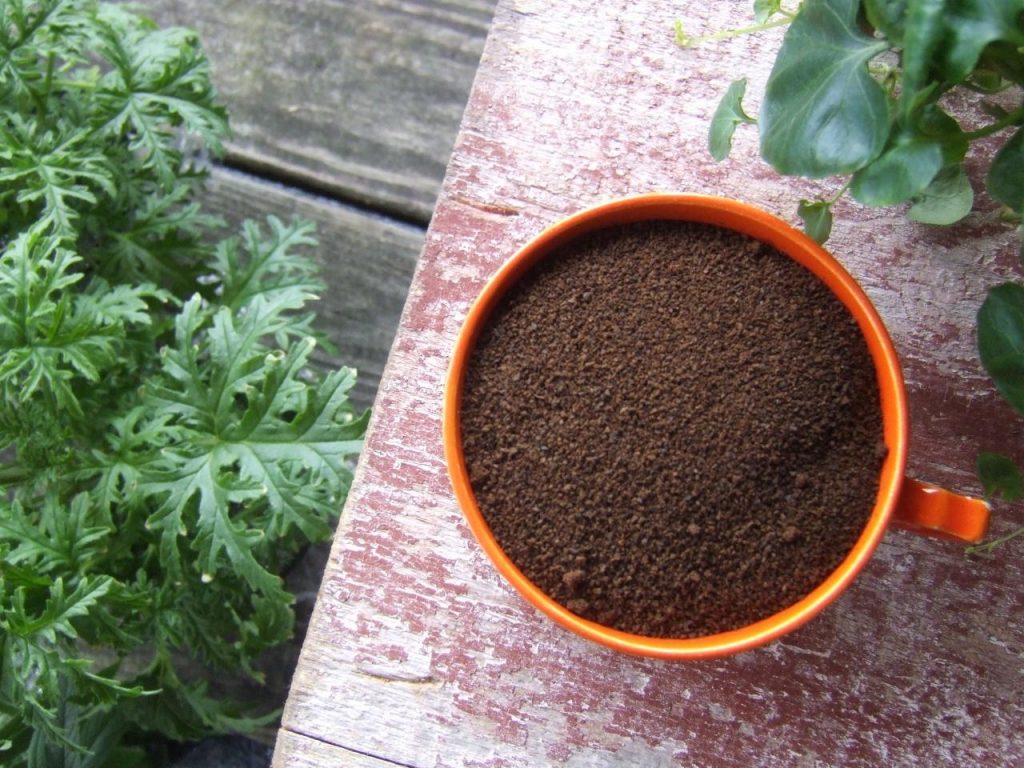
Some plants show adverse effects on coffee grounds either due to caffeine present in them or due to the acidic pH they induce in the soil.
One should avoid using coffee grounds for such plants. You can freely use coffee grounds for acid-loving plants and few root crops. Many gardeners use coffee grounds directly only if the soil is naturally alkaline.
If you want to add still coffee ground irrespective of your soil (maybe to experiment), then rinse the coffee grounds first and then add them.
The rinsing is that the fresh coffee grounds are highly acidic. However, the rinsed coffee grounds have a pH of about 6.4-6.6, closer to the neutral pH (7).
This happens because rinsing with water takes away the acid components. Even the rinsed coffee grounds can cause stunted growth in some plants, so let us look at some other useful and plant-friendly use of coffee grounds.
Coffee Grounds in Composting and Vermicomposting
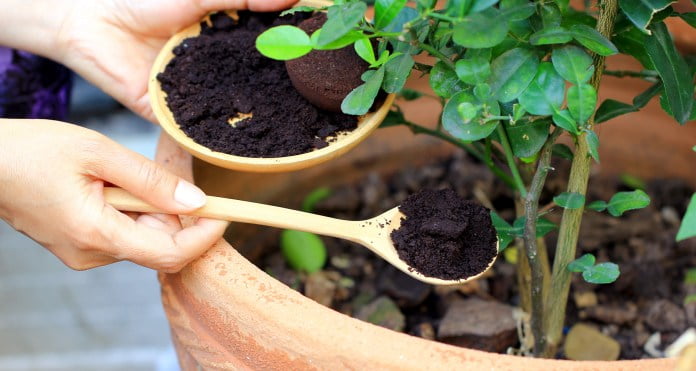
If you are looking for a good waste management technique that benefits you and the environment, composting and vermicomposting are the best. You are using coffee grounds and getting rid of vegetable and fruit residues, tea bags, paper products, cardboard, and other items that can be composted.
Note: Avoid using dairy and meat products in the compost.
Other than the vegetable and fruit residue, coffee grounds are another essential ingredient of composting and vermicomposting due to their nitrogen content.
Talking about vermicomposting, coffee grounds are even more important as they attract worms and are considered potential worm food. Worms used in vermicomposting love eating coffee grounds.
Compost, also known as ‘black gold’ by many gardeners, requires coffee grounds to improve its nutrient value and uptake. Another perk is that coffee grounds help in decreasing the greenhouse gas emissions from your compost.
This is essential for reducing global warming (I know it hardly matters, but it does matter!) and protecting the environment.
Coffee is considered as green compost material, which helps induce nitrogen in the soil. Thus, using coffee grounds in compost helps to add nitrogen. But to ensure the right balance of green compost material, an equal amount of brown compost materials (carbon-rich) should be added.
Note: Though coffee ground adds nitrogen quickly to the compost, it is not valid with the soil. It takes some time to enrich the soil with nitrogen.
Coffee Grounds as Fertilizers
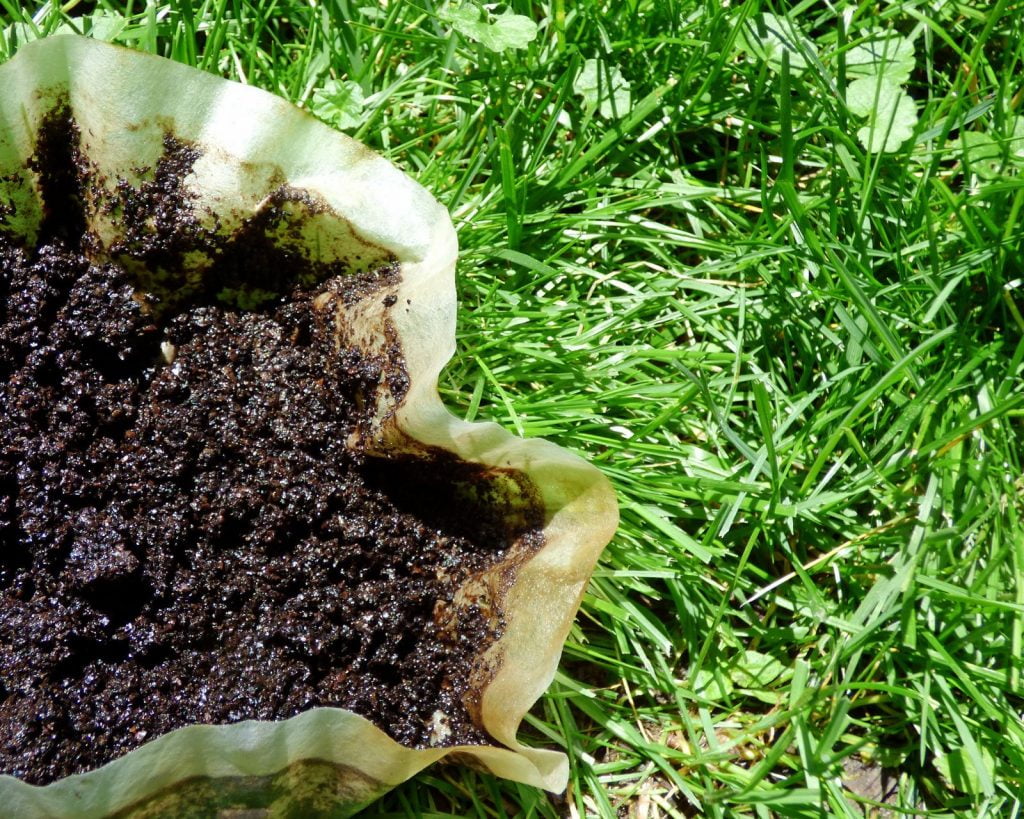
If you cannot wait for the compost to form, you can start experimenting with coffee grounds as a fertilizer for your plants.
They can be used as a fertilizer owing to their nutrient content of NPK, Copper, Chromium, etc. They also improve water retention and aeration of the soil.
But you need to find the right amount of coffee ground as fertilizer because different plants react differently to the coffee grounds. You can mix coffee grounds with eggshells to balance the nitrogen and carbon content of the fertilizer.
This mixture works as a better fertilizer. Using the coffee grounds for the plants also provides a rich environment for the growth of micro-organisms.
Coffee Grounds as Pest and Insect Repellent (With Exception)
Coffee grounds are very effective in keeping away animals like rabbits and cats. These animals cannot bear this caffeinated drink and avoid the places with coffee grounds around them. In the absence of coffee ground, cats and rabbits can treat your garden as their toilet.
Note: Coffee grounds that contain caffeine can be very toxic to cats.
Coffee grounds also help in keeping away snails and slugs from your garden. The reason is the caffeine content of the coffee (Decaffeinated ones will not work well). Ants also do not like coffee grounds, and you will hardly encounter ants in your garden once you start using coffee grounds.
The exception we were talking about is the gardener’s best friend, our earthworms! They love coffee grounds (arguably more than the humans). As previously discussed in vermicomposting, coffee grounds are used as worm food. Their excreta are known as Verm castings, which increase the nutrient content of the soil.
Other Uses in Gardening
You can also use coffee grounds as a fungicide and mulch. Coffee grounds have shown promising signs as a good mulch as well as a fungicide. Coffee grounds have also proven an effective weedicide and can be used in gardens, lawns, and backyards to eliminate weeds.
Conclusion
Coffee grounds are beneficial and useful in gardening. The only thing you need to keep in mind is not to use them blindly. Try and experiment with different amounts of coffee ground for your plants.
Else, you can always prepare compost using coffee ground and other waste materials. When used as a fertilizer, coffee grounds improve water retention capacity and aeration.
Root crops such as carrot and radish, acid-loving plants like blueberry, camellias, and many more love coffee grounds as they provide an acidic environment and NPK nutrients. Moreover, our beloved beverage, which works as an elixir for many, is earthworm’s food! Even micro-organisms love coffee grounds.
Thus, using coffee grounds in gardening is useful and fruitful!

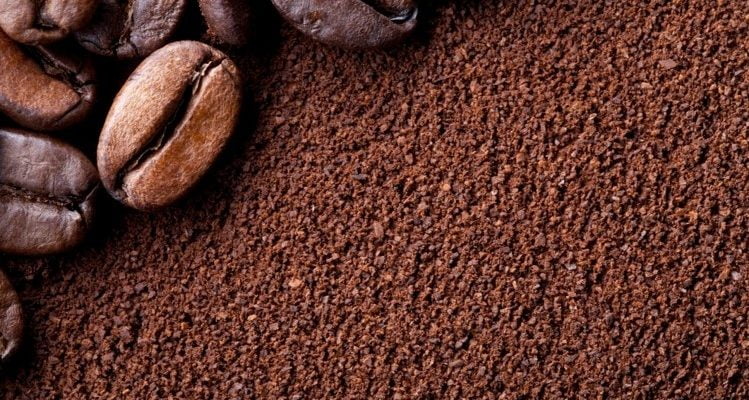

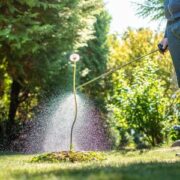



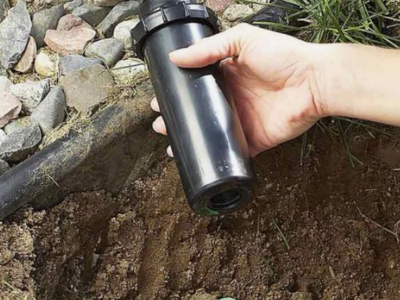
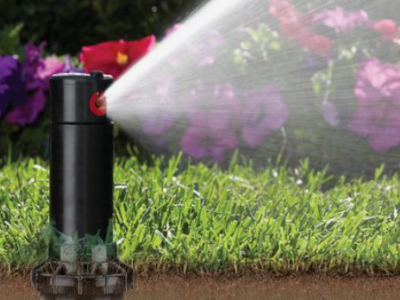
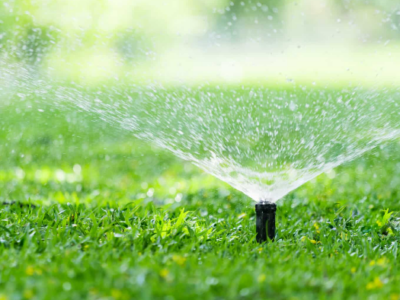
Comments